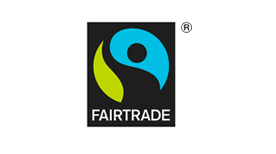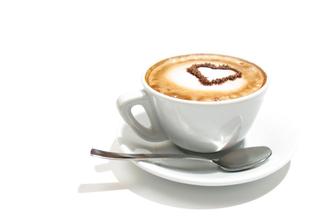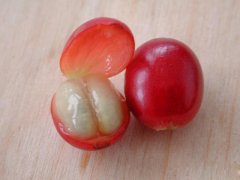Fair Trade Fair Trade Certification for Coffee Farmers in Starbucks Coffee chain
Fairtrade coffee is mainly traded directly with local coffee farmers at fair prices. In transparent management and business forms. Ensure the working environment of producers and protect the local environment. At the same time, it provides corresponding production technology and training, and establishes bridges, schools, hospitals and other facilities. The aim is to achieve sustainable development and poverty alleviation.
Fair Trade, Coffee Direct In 1989, the collapse of the International Coffee Agreement led to a collapse in coffee market prices, which put millions of coffee farmers around the world in a difficult position. In 1991, in response to the crisis, several British charities including Oxfam, Traidcraft, Equal Exchange and Twin Trading teamed up to form Cafédirect. This is an innovative outcome because the firm bypasses traditional markets and buys beans directly from vulnerable coffee farmers in developing countries, without going through intermediate suppliers.
Fairtrade coffee is now a familiar sight in british supermarkets and cafes. Its motivation is laudable because it guarantees the lowest price for coffee growers, and it would be callous to argue against giving them a better price-117m of fairtrade coffee was sold in britain in 2007.
In November 2009, Starbucks announced that by the end of 2009, all espresso coffee sold in its coffee shops in the UK and Ireland would be Fairtrade certified. [1][2]
There is also a Fairtrade City in the UK. Fairtrade goods are used in government offices, schools, businesses, shops and restaurants. For consumers. Every cup of Fairtrade coffee purchased directly supports the lives of poor farmers in developing countries.
Sign:

Fair Trade Coffee Bean Certification
For consumers, every cup of Fairtrade coffee purchased directly supports the lives of poor farmers in developing countries. Coffee is a very lucrative industry in the West because of the instability of the coffee market. Coffee farmers in Africa and other developing countries, where middlemen and traders make large profits from it, are trapped in a cycle of poverty due to low labor. As a result, many children cannot afford to go to school and join the ranks of exploitation, which further aggravates the environmental damage of tropical rainforests. Unfair trade is also one of the main causes of poverty in countries such as Africa today.
And then there's unfair trade and chocolate, which everyone loves. Many African children harvest cocoa fruits with their tender hands every day in their farms. And I haven't even eaten chocolate. The United States is the world's largest coffee consumer, with American men, women and children gulping down one-fifth of the world's coffee production each year, and Latin America is the largest supplier of coffee to the United States. The price of coffee imported from the United States is generally between 0.6 and 0.7 US dollars per pound. Such a low price has turned thousands of coffee plantations in Latin America into veritable "sweatshops in farmland", and even if this 4 yuan is more than RMB, Latin American farmers cannot put it all in their pockets. Their meagre income barely suffices to make ends meet, even to maintain the most basic living of a family.
Fairtrade coffee shops had been making a fortune from wealthy New Yorkers long before the New York Times ran the story in its fashion pages in late April 2007. This is certainly a good thing. It is many times more morally noble than before the French Revolution 200 years ago, when the rich were willing to give only their own bread-dipped leftovers to the poor and voluntarily paid twice the price for Fairtrade coffee.
But in reality, Americans are just using "fair trade coffee" to satisfy their moral vanity,"fair trade coffee" and ordinary 4 yuan a pound of coffee for those who grow coffee, it is difficult to have any essential difference.
Fair Trade, Coffee Direct In 1989, the collapse of the International Coffee Agreement led to a collapse in coffee market prices, which put millions of coffee farmers around the world in a difficult position. In 1991, in response to the crisis, several British charities including Oxfam, Traidcraft, Equal Exchange and Twin Trading teamed up to form Cafédirect. This is an innovative outcome, as the firm bypasses traditional markets and buys beans directly from vulnerable coffee farmers in developing countries, without going through intermediate suppliers.
Fairtrade coffee is now a familiar sight in british supermarkets and cafes. Its motivation is laudable because it guarantees the lowest price for coffee growers, and it would be callous to argue against giving them a better price-117m of fairtrade coffee was sold in britain in 2007.
In November 2009, Starbucks announced that by the end of 2009, all espresso coffee sold in its coffee shops in the UK and Ireland would be Fairtrade certified. [1][2]
There is also a Fairtrade City in the UK. Fairtrade goods are used in government offices, schools, businesses, shops and restaurants. For consumers. Every cup of Fairtrade coffee purchased directly supports the lives of poor farmers in developing countries.
Important Notice :
前街咖啡 FrontStreet Coffee has moved to new addredd:
FrontStreet Coffee Address: 315,Donghua East Road,GuangZhou
Tel:020 38364473
- Prev

High-quality coffee beans Nicaraguan coffee beans introduction to the treatment of coffee beans
Dry aromas are full of chocolate, with aromas of hazelnut and cocoa. The wet aroma also has the smell of chocolate, accompanied by the smell of orange peel. With the baking degree of city+, the bright lemon acid and long cocoa finish are wonderful. Dry aroma (1-5): 3.8 wet aroma (1-5): 3.8 acidity (brightness) (1-10): 8.9 taste (layered) (1
- Next

Buy Fairtrade Coffee Third World Grown Coffee Beans or Cocoa Beans Premium Coffee Beans
Fairtrade generally means that farmers from the third world growing crops such as coffee or cocoa, or workers sewing shirts in overseas factories, have been paid fairly and not exploited. The purpose of this label is to serve as a compass for public-spirited consumers in rich countries, so that they know the company that produced the product before they buy it.
Related
- Detailed explanation of Jadeite planting Land in Panamanian Jadeite Manor introduction to the grading system of Jadeite competitive bidding, Red bid, Green bid and Rose Summer
- Story of Coffee planting in Brenka region of Costa Rica Stonehenge Manor anaerobic heavy honey treatment of flavor mouth
- What's on the barrel of Blue Mountain Coffee beans?
- Can American coffee also pull flowers? How to use hot American style to pull out a good-looking pattern?
- Can you make a cold extract with coffee beans? What is the right proportion for cold-extracted coffee formula?
- Indonesian PWN Gold Mandrine Coffee Origin Features Flavor How to Chong? Mandolin coffee is American.
- A brief introduction to the flavor characteristics of Brazilian yellow bourbon coffee beans
- What is the effect of different water quality on the flavor of cold-extracted coffee? What kind of water is best for brewing coffee?
- Why do you think of Rose Summer whenever you mention Panamanian coffee?
- Introduction to the characteristics of authentic blue mountain coffee bean producing areas? What is the CIB Coffee Authority in Jamaica?

